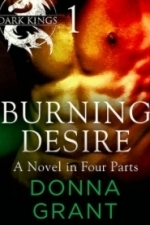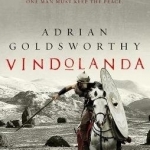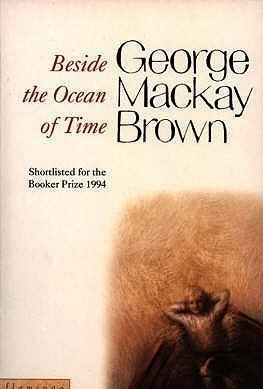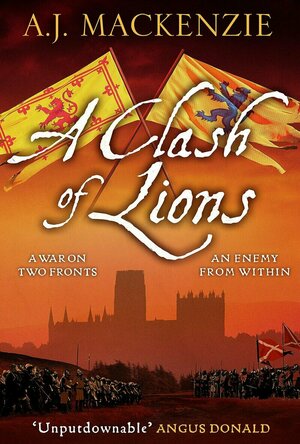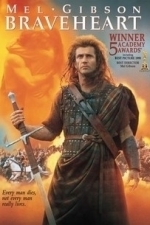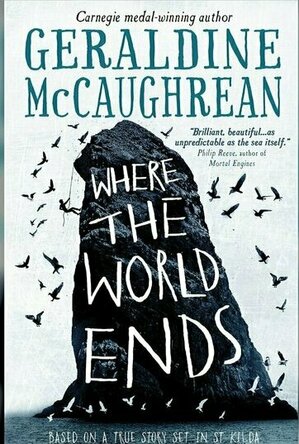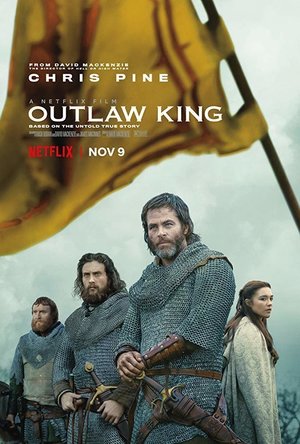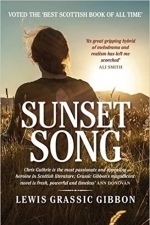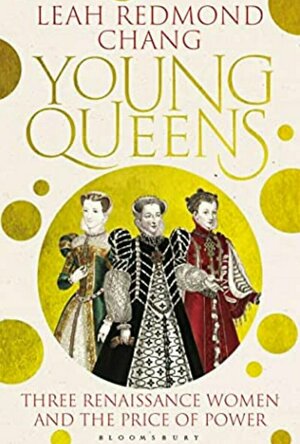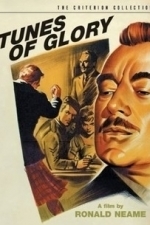Search
Search results
Clare Parrott (294 KP) rated Burning Desire: Part 1 in Books
Feb 13, 2018
When I started reading this book I was unaware it was part of a series and as so I feel I have missed out on much of the history. Part 1 is OK so far but I have to say that the written scottish accent is very annoying, I am quite capable of putting in a scottish accent as I read if the character has one. I want to keep reading but the accent thing is really going to bug me.
stephen (6 KP) rated Vindolanda in Books
Jul 24, 2017
northern limits of empire
the author has a detailed knowledge of roman army and history and felt the book was slightly too long but did enjoy it overall as you felt you were on the fringes of the roman empire in whats now close to the english/scottish borders.
Eilidh G Clark (177 KP) rated Beside the Ocean of Time in Books
Jul 2, 2019
This is a brilliant, emotional and pretty book
This is a beautiful novel. I found it slow to begin with but it is worth while persisting. The story centres around the inhabitants of the isle of Norday is the North of Scotland in the early 20th century. The protagonist Thorfinn Ragnarson is a bit of a daydreamer and his thoughts and dreams are narrated within the novel. This allows Brown to explore a rich and sentimental Scottish history whilst capturing the beauty and untouched lives of these rural Scottish farmers. Furthermore, the novel explores the effects of the Second World War and its devastation on these simple folks. Lovely.
David McK (3721 KP) rated A Clash of Lions (100 Years War, book 2) in Books
Mar 31, 2024
The second of AJ MacKenzie three 100 Years War novels following the exploits of the Herald Simon Merrivale, which - this time - moves the setting from France across to the Scottish border.
I'm also finding this a little bit hard to rate: whilst the *story* was interesting, as was the history, I found the prose itself to be a little bit too dry; never really grabbing me and sucking me in the way a, say, Bernard Cornwell might.
I'll still read the next in the series, though.
I'm also finding this a little bit hard to rate: whilst the *story* was interesting, as was the history, I found the prose itself to be a little bit too dry; never really grabbing me and sucking me in the way a, say, Bernard Cornwell might.
I'll still read the next in the series, though.
Colin Campbell (25 KP) rated Braveheart (1995) in Movies
Apr 28, 2019
Action (2 more)
Swordplay
Freedom
Historically inaccurate (1 more)
Gibson's accent
Hold... Hold... HOOOLLLLDDDD!
Contains spoilers, click to show
As a story this is a great film, unfortunately people who have limited or no knowledge of Scottish History take this film as a portrayal of all things Scottish around this time.
So to save some confusion:
Longshanks died well after Wallace
The French Princess did not exist
The Bruce wasn't a traitor
Wallace wasn't the leader until after Stirling Bridge
Woad hadn't been worn for about 1000 years
It didn't start with the death of his wife
So now I have this off my chest, to the film itself. It is an epic and one of the films that you must see before you die, just like Shawshank, High Noon and Inside Out.
The story of the one group persecuting another, and a man coming back to his village after spending time abroad learning taking revenge on the death of his secret wife cumulating in open rebellion and war is a common story told many times in cinema history. What makes this is the scenery and the cinematography.
The fight scenes show the brutality and barbarity of war in this era in history. This does it expertly!
If you want something more historically accurate look at Rob Roy with Liam Neeson, if you want a chill film this is the one for you.
So to save some confusion:
Longshanks died well after Wallace
The French Princess did not exist
The Bruce wasn't a traitor
Wallace wasn't the leader until after Stirling Bridge
Woad hadn't been worn for about 1000 years
It didn't start with the death of his wife
So now I have this off my chest, to the film itself. It is an epic and one of the films that you must see before you die, just like Shawshank, High Noon and Inside Out.
The story of the one group persecuting another, and a man coming back to his village after spending time abroad learning taking revenge on the death of his secret wife cumulating in open rebellion and war is a common story told many times in cinema history. What makes this is the scenery and the cinematography.
The fight scenes show the brutality and barbarity of war in this era in history. This does it expertly!
If you want something more historically accurate look at Rob Roy with Liam Neeson, if you want a chill film this is the one for you.
James Koppert (2698 KP) rated Where the World Ends in Books
Nov 3, 2019 (Updated Nov 3, 2019)
McCaughrean does an incredible job here. She heard a true story of a group of boys and men in the 1800s who go to a 'stack' to farm birds. The stack is a juttering jagged rock rising from the cold Scottish seas, a nasty place to be, so they plan to stay for a few days and then they hope to be collected. Although they weren't. McCaughrean then tried to imagine what happened to them next and what we get is an incredible well imagined narrative of hardship and survival filled with hope and love and triumph and turmoil. One of those novels which gives you a piece of history which was unknown and hard to imagine and at the same time makes you ask yourself what you would do in the same situation.
Kelly (279 KP) rated Outlaw King (2018) in Movies
Dec 16, 2018
Clear passion to retell the story (1 more)
Excellent battle scene
Watchable
After seeing an advert for the Outlaw King, I was excited to watch the movie. Despite this I found that the film missed my expectations, and I found that it became almost boring in places.
The writers of the outlaw king had a clear passion to retell the story of Robert Bruce and his fight to regain the Scottish crown from the English in the early Plantagenet period. To the best of my knowledge, the story was told as accurately as possible, however this did mean that there were a lot of scenes centred around the politics of Roberts plight. The slower scenes were unbalanced with the battle scenes which meant that the pace of the story dipped many times during the film - I have to confess it took me three attempts to watch it in full as a result of this.
As the writers tried to cram too much into such a short film, I found that the movie had a bit of an identity crisis - was this an action, romance or political film? Had the writers focused on just one area, I believe the movie would have been a lot more watchable, instead the movie felt overloaded.
The acting in general was okay, and reasonably well cast, except for the relationship between Robert Bruce and his wife. I struggled to believe the romance between the two actors. Although this is ultimately my opinion, I struggled to believe that what was ultimately an arranged marriage between the two, could rest in the two characters falling for each other as quickly as the film portrayed.
In general, the film is watchable, although it is not one I would go to as a first choice. There are some good parts of the film, for example the relationship between Robert and his men, and the final battle scene. The film also teaches us about part of Scottish history that tends to be overlooked by many schools during history lessons.
The writers of the outlaw king had a clear passion to retell the story of Robert Bruce and his fight to regain the Scottish crown from the English in the early Plantagenet period. To the best of my knowledge, the story was told as accurately as possible, however this did mean that there were a lot of scenes centred around the politics of Roberts plight. The slower scenes were unbalanced with the battle scenes which meant that the pace of the story dipped many times during the film - I have to confess it took me three attempts to watch it in full as a result of this.
As the writers tried to cram too much into such a short film, I found that the movie had a bit of an identity crisis - was this an action, romance or political film? Had the writers focused on just one area, I believe the movie would have been a lot more watchable, instead the movie felt overloaded.
The acting in general was okay, and reasonably well cast, except for the relationship between Robert Bruce and his wife. I struggled to believe the romance between the two actors. Although this is ultimately my opinion, I struggled to believe that what was ultimately an arranged marriage between the two, could rest in the two characters falling for each other as quickly as the film portrayed.
In general, the film is watchable, although it is not one I would go to as a first choice. There are some good parts of the film, for example the relationship between Robert and his men, and the final battle scene. The film also teaches us about part of Scottish history that tends to be overlooked by many schools during history lessons.
Eilidh G Clark (177 KP) rated Sunsett Song in Books
May 14, 2017
there are better things than your books or studies or loving or bedding, there’s the countryside your own […] in the days when you’re neither bairn nor woman.’ I
Sunset Song by Lewis Grassic Gibbon, published in 1932 became the ‘cream of the crop’ in a poll organised by The Scottish Book Trust last year. Not only was it voted as Scotland’s favourite novel, First Minister Nicola Sturgeon described it as ‘timeless’ in an interview with the BBC, ‘ it said something about the history of the country I grew up in and it resonated with me very strongly as a young Scottish woman.’ I have to say that I am in agreement with the First Minister. Sunset Song is a beautifully written aesthetic novel that follows the life and internal conflict of the protagonist Chris Guthrie. By presenting Chris as a kind of cultural double, Gibbon is showing the reader the problems that result in Chris’s separation from the community and her parents conflicting interests regarding her upbringing. Chris’ father, hoping to enhance his daughter’s natural intelligence, is aware of the negative impact that the community might have on her progression, ‘Stick to your lessons and let’s see you make a name for yourself, you’ve no time for friends.’ John Guthrie, a progressive man, regards Chris’s peers as ‘servant queans.’ Whilst this may read as a cultural attack on the lower classes, John Guthrie, is simply reacting to his own working class conditions as a farmer. His motivation is to raise Chris out of the environment that he himself has struggled in and to give her better opportunities. Chris refers to her intelligent self as ‘English’ and identifies a cultural otherness between herself and those of her community. Chris’ mother Jean, on the other hand, has a view of the world that is from a much older time. Before marriage she was a free spirit, ‘there are better things than your books or studies or loving or bedding, there’s the countryside your own […] in the days when you’re neither bairn nor woman.’ It was Gibbon’s intention to create a heteroglossic view of education between Chris’ parents in order to create a protagonist whose future is a conflict between progression and an older unstructured way of life. It is through Chris’s thoughts, however, that her true self can be found. Her English self forms an escape, a place that is simpler, refined and an improvement on how she perceives Scottish culture as a result of her class, ‘the furrows went criss and cross, you wanted this and you wanted that, books and the fineness of them no more than empty gabble sometimes, and then sharn and the snapping that sickened you and drove you back to books.’ It is clear that Gibbon wanted to show the reader that Scottish culture does evaporate with progression. Culture lives in all of us, in the people, the land and in the struggles that we have faced and will face in the future. Chris Guthrie is the perfect example of hope, for a future which is rich in learning while still embracing her Scottish roots, I guess a future we can all identify with.
ClareR (6081 KP) rated Young Queens: Three Renaissance Women and the Price of Power in Books
May 31, 2023
It’s not often that I read a non-fiction history book - I’m more of a historical fiction reader - and I’m really glad that I picked this up.
This book is about the lives of Catherine de’ Medici (married to the French Henry II), Elisabeth of Spain and Mary, Queen of Scots and how their lives wove together.
There are some really interesting facts here (Mary was nearly 6 feet tall - now THIS is the kind of fact I live for!). But it was the personal side that really interested me. Catherine loved her children fiercely even though she had little time with them. She wanted to know every detail of their lives. Her letters to Elisabeth when she went to Spain were filled with family gossip and instructions. Just the kind of stuff that any mother would send their daughter, and Elisabeth appeared to want to always make her mother proud.
Mary and Elisabeth were like sisters, so when Mary needed Elizabeth’s and Spain’s support when the Scottish Lords turned against her, it must have hurt her greatly when they refused to help.
What I liked most was having the opportunity to dip my toes in to the history of France and Spain. It sounded as tumultuous as our own.
I do think that I’m going to have to follow up on Cathrine de’ Medici, though. Now she sounds fascinating!
I’m so glad that I read this - thanks to The Pigeonhole!
This book is about the lives of Catherine de’ Medici (married to the French Henry II), Elisabeth of Spain and Mary, Queen of Scots and how their lives wove together.
There are some really interesting facts here (Mary was nearly 6 feet tall - now THIS is the kind of fact I live for!). But it was the personal side that really interested me. Catherine loved her children fiercely even though she had little time with them. She wanted to know every detail of their lives. Her letters to Elisabeth when she went to Spain were filled with family gossip and instructions. Just the kind of stuff that any mother would send their daughter, and Elisabeth appeared to want to always make her mother proud.
Mary and Elisabeth were like sisters, so when Mary needed Elizabeth’s and Spain’s support when the Scottish Lords turned against her, it must have hurt her greatly when they refused to help.
What I liked most was having the opportunity to dip my toes in to the history of France and Spain. It sounded as tumultuous as our own.
I do think that I’m going to have to follow up on Cathrine de’ Medici, though. Now she sounds fascinating!
I’m so glad that I read this - thanks to The Pigeonhole!
